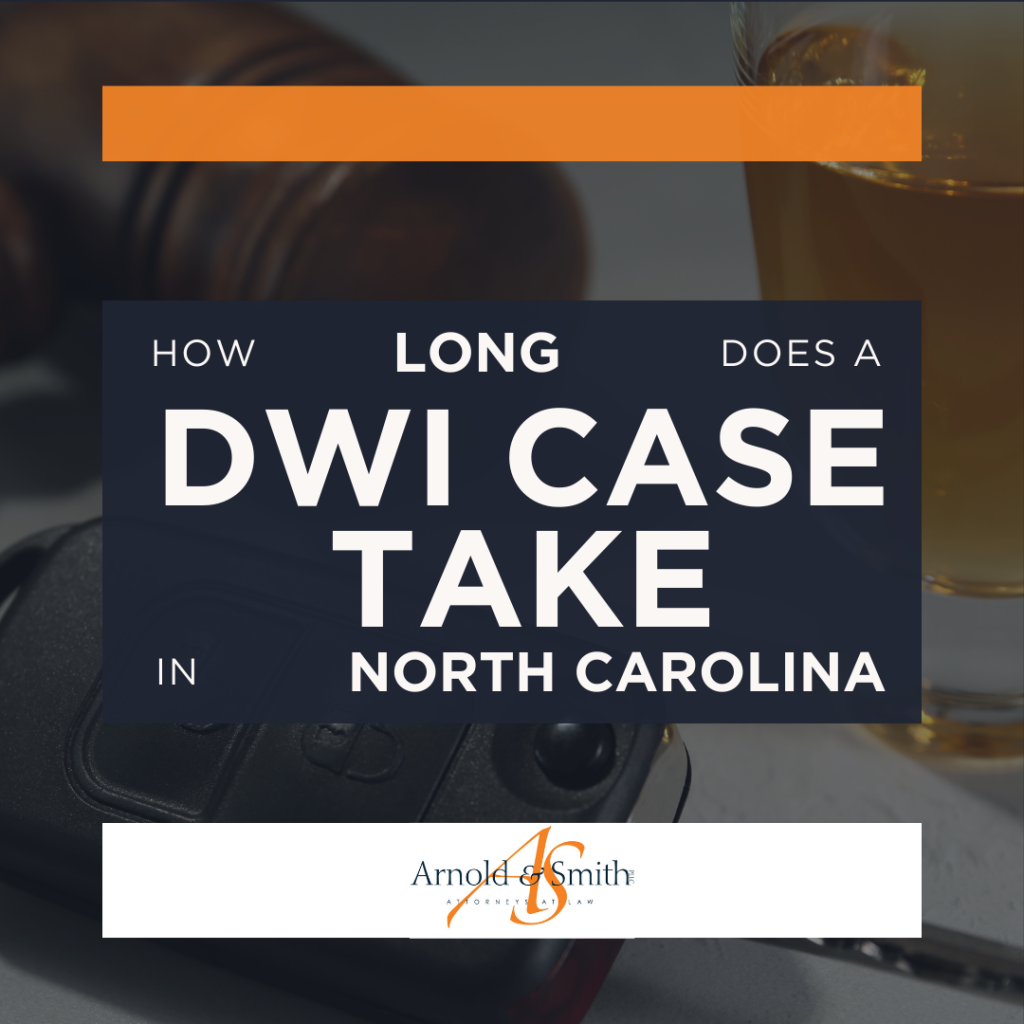 How Long Does a DWI Case Take in North Carolina?
How Long Does a DWI Case Take in North Carolina?
Driving while impaired (DWI) is essentially the same as driving under the influence (DUI). In North Carolina, as in other states, you could be criminally charged with DWI if you are found to be driving while under the influence of alcohol or drugs. As someone who generally stays out of trouble, this could be the first time you are facing criminal charges in North Carolina. The experience can be daunting, and the process can be somewhat lengthy. Unlike a simple traffic violation, a DWI case will proceed through the criminal court system. It is helpful to understand the DWI process.
Arrest and Arraignment
When you are stopped by police, they may ask you to participate in some field sobriety tests as well as a breath test. The police may make this request if they have reason to suspect that you are driving while impaired. The police might arrest you for DWI and take you to the police station. At the police station, you will be given a breath or blood test to measure the blood alcohol concentration (BAC). Later, you will go before a judge for your arraignment. The arraignment is the first appearance, where the judge will give you the specific charges, and you will enter a plea. The judge will also set bail.
Charlotte DWI Lawyer Brad Smith answers the question: “Is there more than one way for police to charge a person with DWI?”
Preliminary Hearing
The preliminary hearing is a court proceeding where the prosecutor presents evidence of your alleged guilt and provides the judge with information regarding your intoxication. The judge will review the evidence and make a decision as to whether there is enough evidence to proceed with the case. The judge will make a ruling and set a date for the next hearing. In some cases, the defendant may elect to waive the preliminary hearing. It is best to consult with a DWI attorney to assist with your case.
Pretrial Preparation
Both the prosecutor and defendant will prepare for trial. They will review evidence and make pretrial motions that pertain to the proceedings. One important step your attorney may take is to file a motion to suppress evidence in your case. If police gathered evidence improperly or made other procedural mistakes, it may be possible to exclude DWI evidence from the trial. Without important evidence, the prosecutor may be unable to prove the case. If that happens, or if the evidence against you is weak, the prosecutor may offer a plea bargain. A knowledgeable DWI attorney will be able to handle this part of the process.
Trial and Sentencing
Once the pretrial motions and hearings are complete, the judge will schedule a trial date. The hearings and other processes can take months to complete. If the case continues to trial, you will be required to attend a trial in front of a judge or jury. At trial, both sides present their cases and may call witnesses and experts as well as provide reports and other evidence. At the conclusion, the judge or jury will determine a verdict. If found guilty, the judge will impose a sentence based on the law and mitigating and aggravating factors. The sentence could include fines, jail time, probation, and suspension of your license, among other things.
The DWI legal process can be lengthy and is based on court and attorney schedules. If you are facing DWI charges, you will want to seek legal guidance as soon as possible. To get the legal help you need, call us at Arnold & Smith, PLLC, at (704) 370-2828 today.
The criminal defense attorneys at Arnold & Smith, PLLC make it their mission to zealously defend their clients on a wide range of criminal matters at both the state and federal levels. These matters may include any charge from traffic offenses; DWI/DUI; drug charges (from simple possession to possession with intent to distribute and trafficking); gun permit denials; weapons offenses; and property crimes (larceny, breaking and entering, robbery, fraud, embezzlement, white collar offenses); to sexually related offenses (indecent exposure; sexual assault, crimes against nature, removal from sex offender registry); and violent crimes (domestic violence; assault; manslaughter; homicide, murder). Other legal issues that Arnold & Smith, PLLC criminal clients may be facing include restraining orders, restraining order and probation violations, expungements; appeals; and immigration issues related to criminal charges. Our criminal defense attorneys are passionate about ensuring that individuals empower themselves by being informed about their constitutional rights and stand at the ready to fight in the defense of those facing criminal charges.
Source:
plea bargain | Wex | US Law | LII / Legal Information Institute (cornell.edu)
Image Credit:
Man with drink handing over car keys Free Photo Download | FreeImages
See Our Related Video from our YouTube channel:
See Our Related Blog Posts:
What are the Best Strategies for Defending DWI Charges?
 Charlotte Criminal Lawyer Blog
Charlotte Criminal Lawyer Blog



